Inside France's 'boot camp' for wavering radicals
- Published
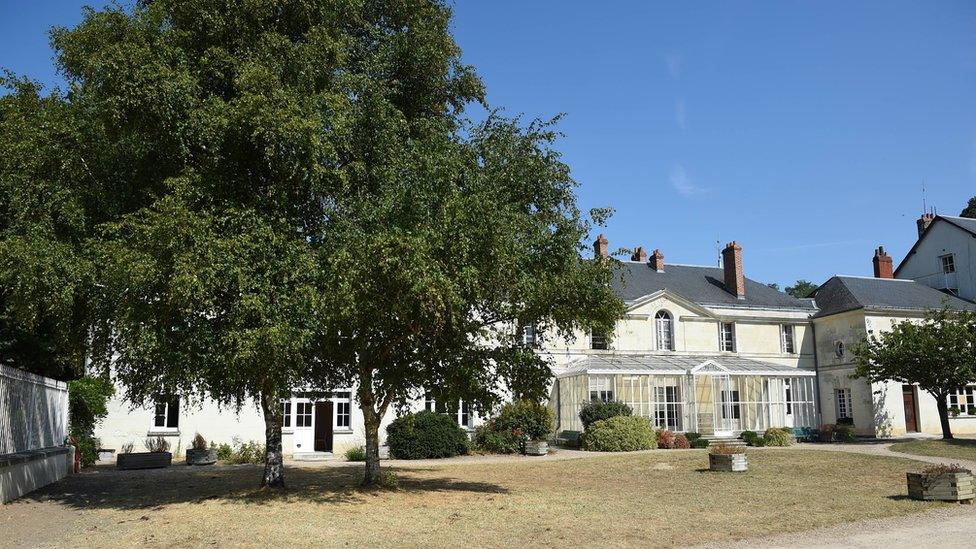
Under pressure to tackle home-grown jihadism, the French government is opening a string of rehabilitation centres to combat extremism - and the first one is already proving controversial.
There's a pink sky over the vineyards of the Loire Valley. On the outskirts of Beaumont en Veron, a group of men and women are chatting around a garden table over their evening aperitif.
A bucolic scene? Well, not quite. Despite the perfect sunset and the chilled bottle of rose, no-one is happy.
These villagers are outraged that a small chateau on their doorstep is about to become France's first Centre for Prevention, Integration and Citizenship — or what some call a de-radicalisation boot camp.
"The government is conducting a crazy experiment over there," says Michel Carrier, pointing to a collection of 18th-Century buildings a few hundred yards away across a small road.
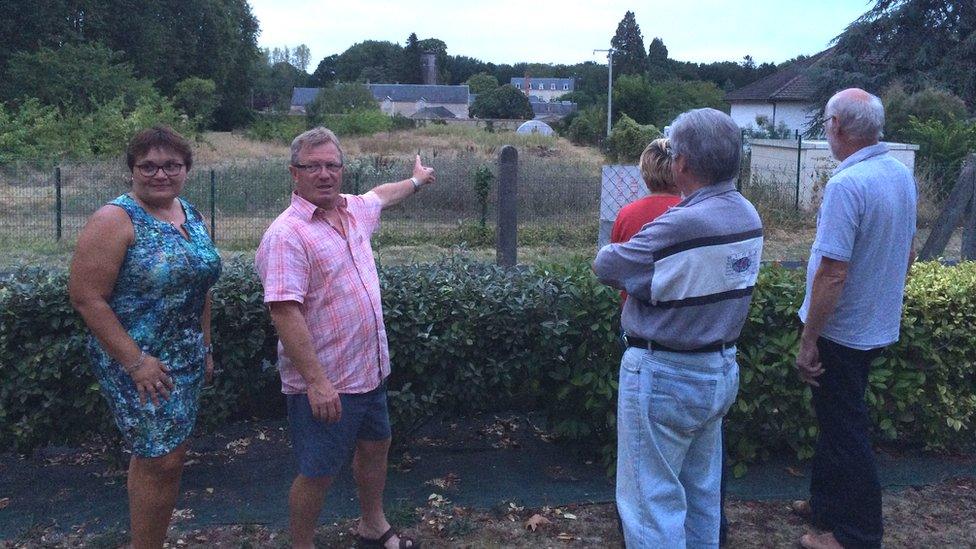
"We may be outside the cage, on this side of the fence," he declares, "but we feel like the guinea pigs."
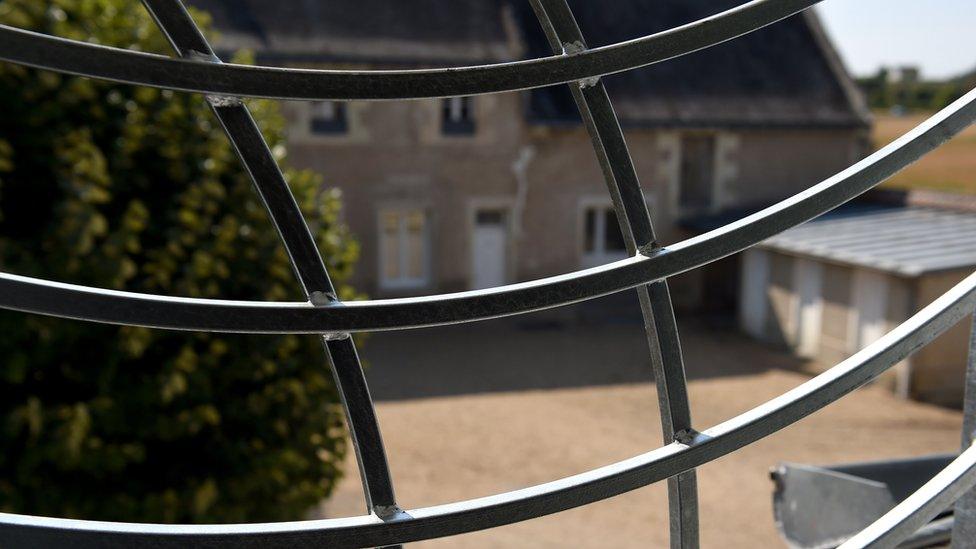
Despite official assurances that the first residents of the centre would come "voluntarily" and be restricted to those who had "never been convicted for acts linked to radicalisation", Michel, who heads the local protest group, is unconvinced.
"We live with fear in our stomachs," he says, "especially after Nice."
He adds that the lorry driver responsible for mowing down 90 people on Bastille Day as they watched a firework show on the French Riviera had no criminal record.
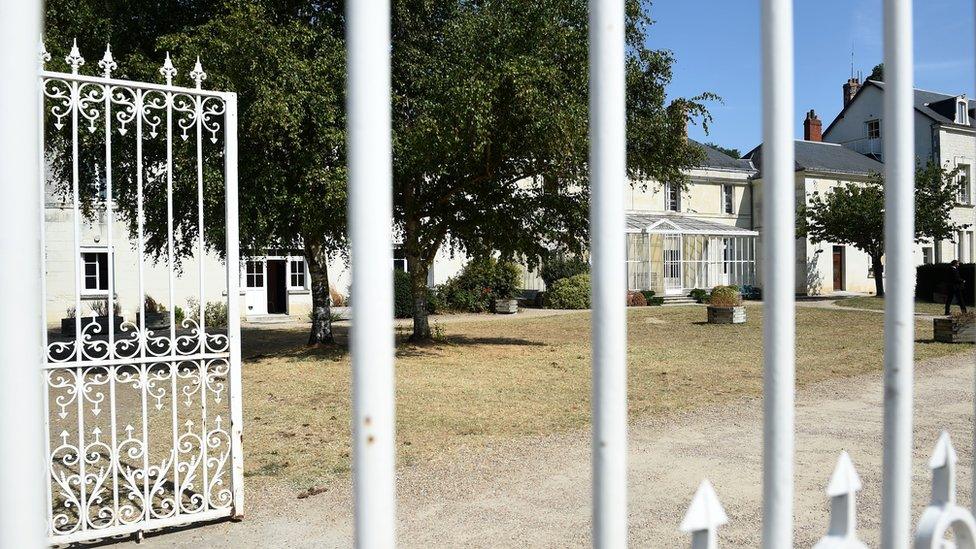
But Michel, who once worked at the nuclear power station in nearby Chinon, also fears the centre might provide a tempting target for terrorists.
French Prime Minister Manuel Valls has said, external nearly 15,000 people in France were on the radar of police and intelligence services because they are suspected of being radicalised, while 1,350 are under investigation - 293 because of alleged links with a terrorism network.

Find out more
From Our Own Correspondent has insight and analysis from BBC journalists, correspondents and writers from around the world
Listen on iPlayer, get the podcast or listen on the BBC World Service or on Radio 4 on Thursdays at 11:00 BST and Saturdays at 11:30 BST

From now until the end of 2017 the state plans to open 13 residential rehabilitation centres - one in each region of France - at a reported cost of £40m, external. They will accommodate different kinds of people - some may be for hardened radicals who have recently come back from Syria or been released from prison.
But the first one to open is more of a prevention centre - "de-radicalisation light".
Until recently, the converted chateau of Pontourny was home to unaccompanied foreign minors but, in a cost-saving measure, it was closed down and its remaining residents were transferred elsewhere. Local politicians were keen to save some of the jobs and 20 employees have been retrained to work in the new centre.
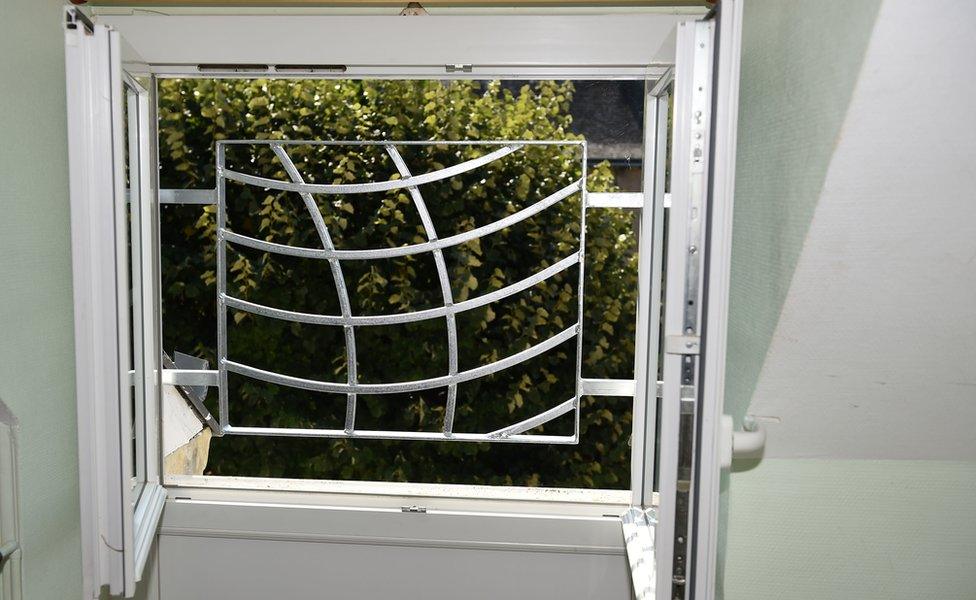
"Our MP and the mayors had done a deal", says Michel's neighbour, Valerie. "They followed orders from above and now their mouths are sewn up."
She describes the new project as "window dressing ahead of the presidential elections next year".
"Francois Hollande is desperate to be seen to be doing something to fight extremism," she says. "But he'll lose anyway," Michel interjects. Who'll win, I ask. I'll tell you after another glass of wine, he replies.
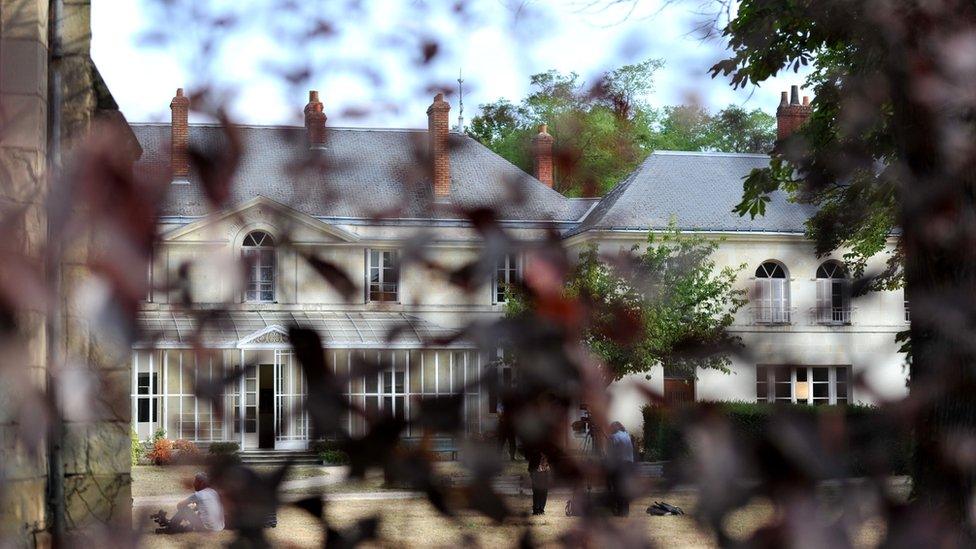
I don't stay for that, but the next morning it's clear which party thinks it can exploit local discontent.
At the top of the drive leading to the chateau, Michel's group are holding angry banners and they are joined by Veronique Pean, a regional councillor from the Front National. She hands me a press release which denounces the government's incompetence in the face of Islamist terror.
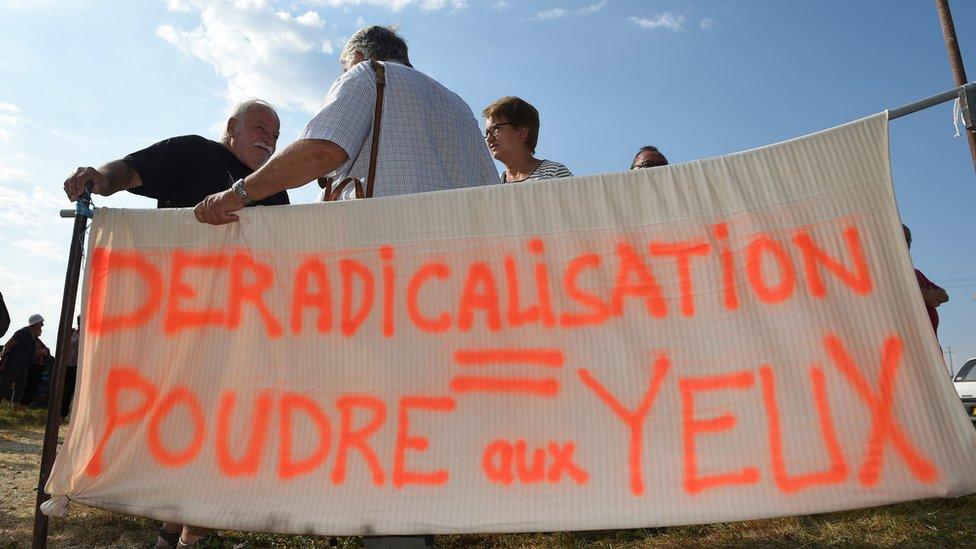
Banner reading: "De-radicalisation = smoke and mirrors"
Today, the area is swarming with police armed with clipboards. I'm stopped several times and asked to show my ID. Along with other journalists, I've come to peek inside the chateau and to meet Muriel Domenach, France's former consul in Istanbul and newly appointed anti-extremism tsar.
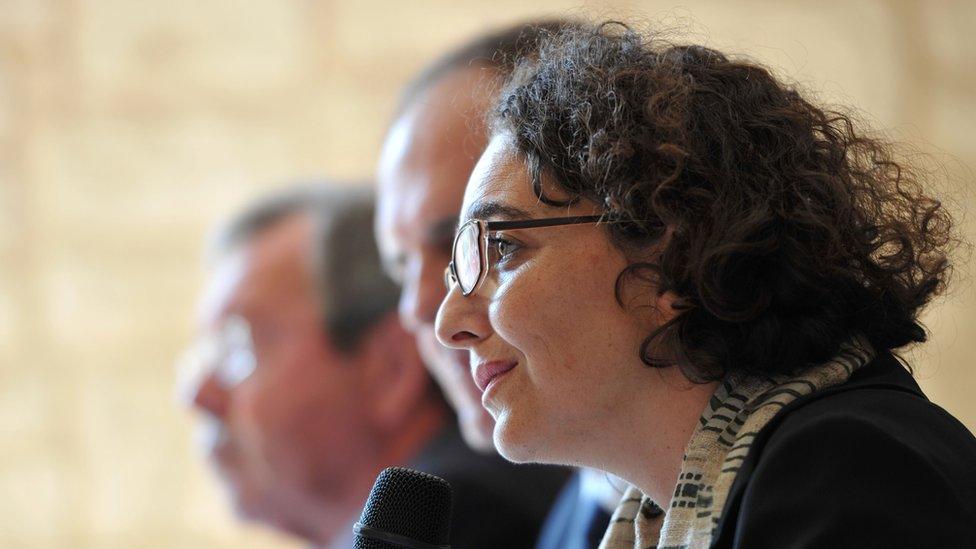
Anti-extremism tsar Muriel Domenach
The centre, we're told, is not in the business of de-radicalisation but re-engagement and re-integration. The aim is to support young people who are cut off from their families and friends and "rescue them before they fall off the edge into radicalism", as Domenach puts it.
But why would somebody on the path of radicalisation volunteer to come to a place like this? "It's complicated," says Domenach. "With young people on the brink there's often a tug of war between a thirst for life and a fascination with death."

But I am still confused. How will people end up here if they aren't funnelled through the criminal justice system? Apparently they can be referred by concerned teachers or by parents who have called a helpline called Stop-Djihadisme, external.
So how much pressure are they under to come? In the country of liberty this centre seems to be testing the definition of what it means to be a free citizen.
Gerald Bronner, a Grenoble sociologist, who has helped design the programme, says "telling people they are wrong never works. Instead we need to try and open their minds and strengthen their intellectual immunity to extremist ideology.
"But that can't be imposed - they have to do that for themselves."
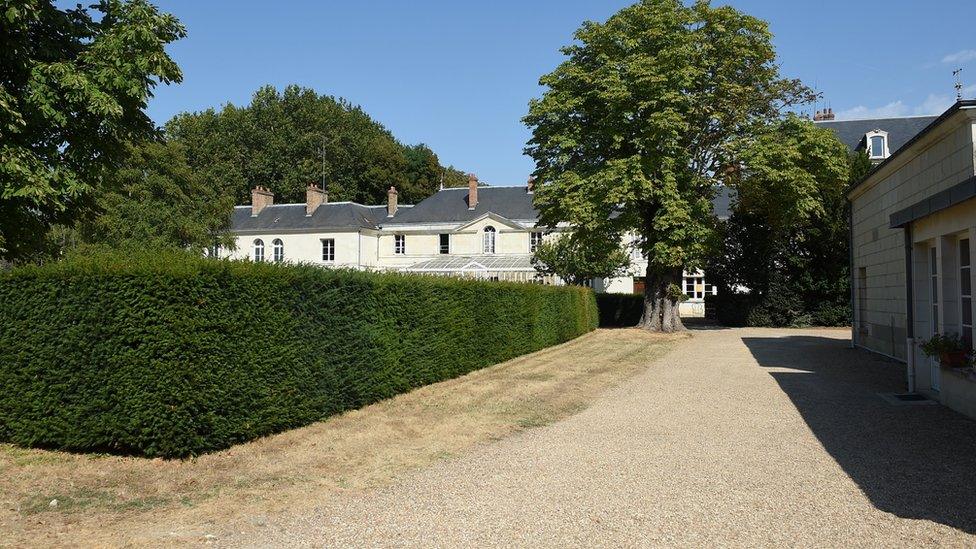
The centre has room for 30 recruits but it's unclear how many have so far signed up. We walk down the wide, gravelled drive past majestic chestnut trees to see a typical bedroom in the new unit - the chateau's former laundry house.
It's a bit spartan, with a tiled floor, but there's a brightly coloured duvet and alarm clock on the bedside table. "Just like a kids' holiday camp," scoffed one French TV reporter.
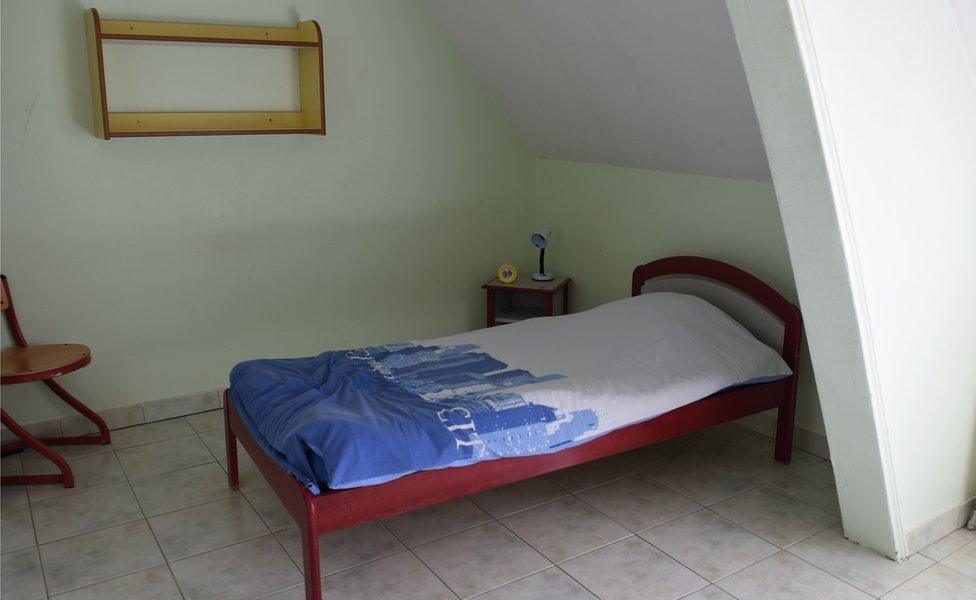
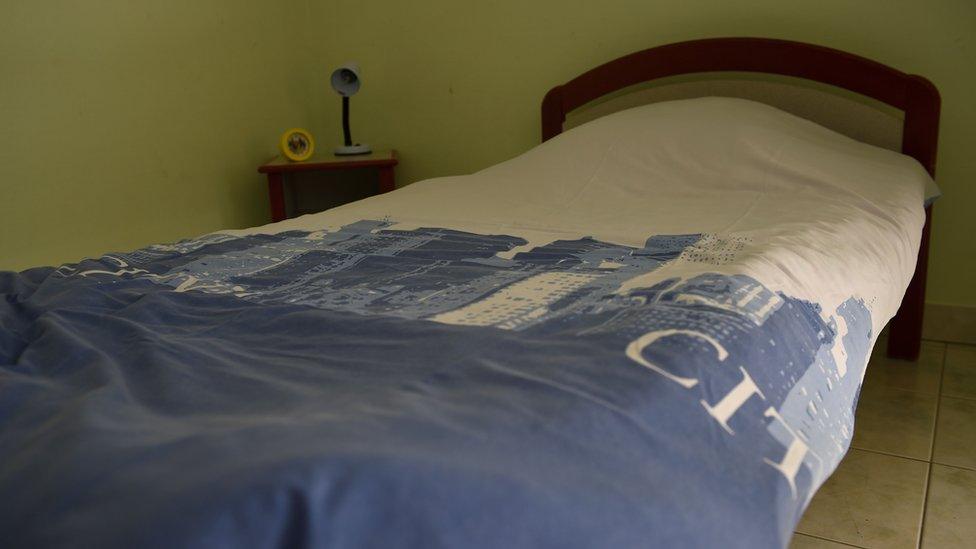
To me it feels more like a military boarding school. Residents will have to get up at 06:45 each morning, go to classes and wear uniforms or "certain outfits", as the director puts it.
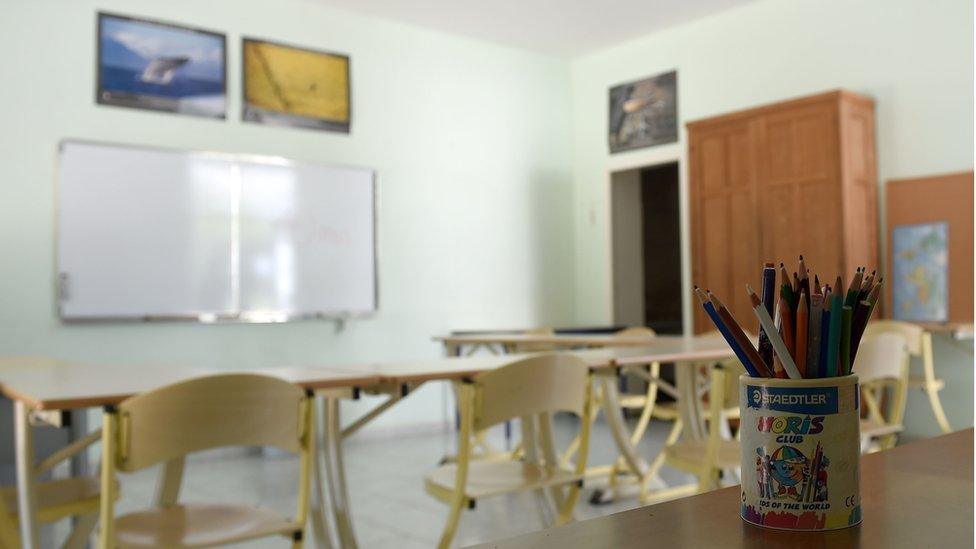
They'll study French history, religion and philosophy. Once a week they'll salute the French flag and sing La Marseillaise.
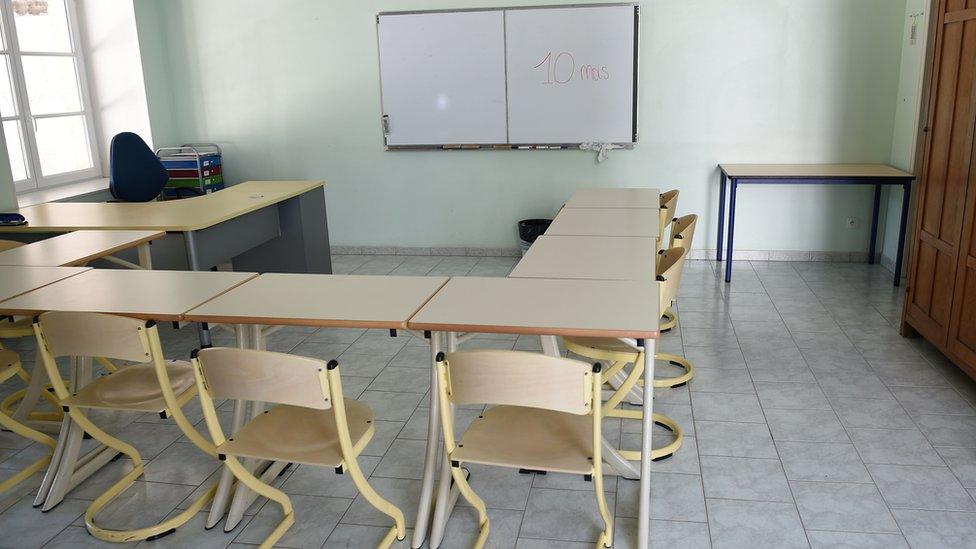
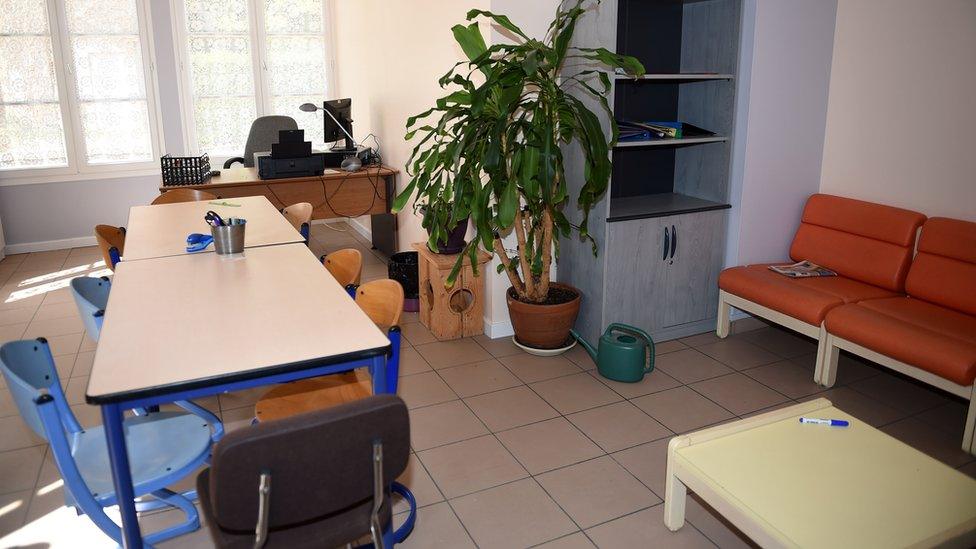
Some critics warn that this approach might backfire but republican values, insists the Prefet of Indre and Loire, are the key to success. "They need to feel like citizens," he says. Residents will be able to do sport, capoeira, slam poetry and horse therapy.
When asked about whether the young people would have freedom of worship and access to imams, Domenach said religious observance, prayers and the wearing of the veil could take place during free time in the residents' bedrooms.
Towards the end of their 10-month stay, residents may be allowed out for work experience or to visit their families. What about their use of laptops and mobile phones while they're here? "Computers will be strictly pedagogical and anyway," smirks one interior ministry official, "the signal here is terrible."
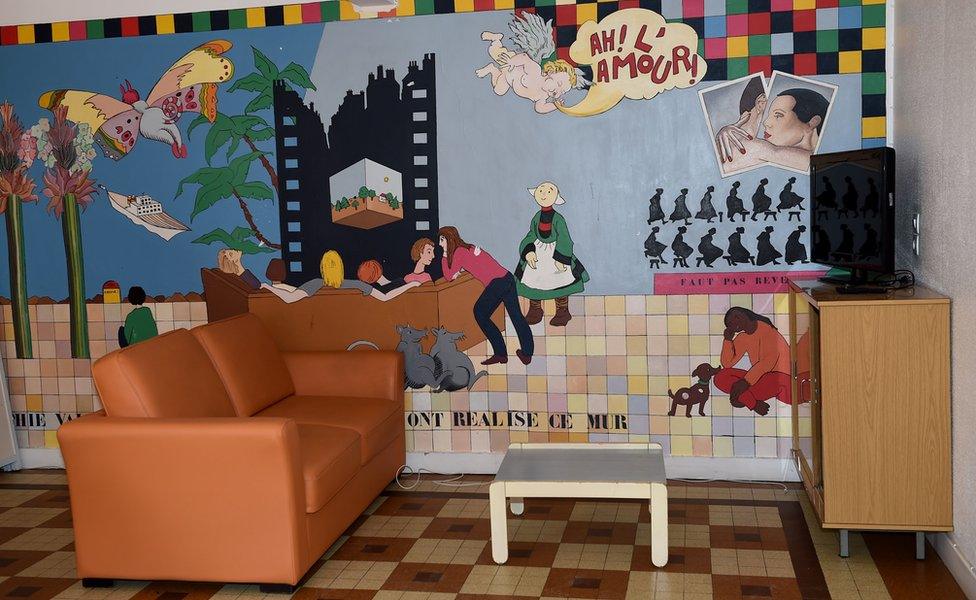
And what about the concerns of local people? They're "irrational," says the mayor of Beaumont en Veron, adding that 18 cameras and other security measures are in place - although there are no guard dogs. "There's no such thing as zero risk but we must help these young people somehow," he says.
Domenach agrees. "The most dangerous and irresponsible action," she concludes, "would be to do nothing."
Join the conversation - find us on Facebook, external, Instagram, external, Snapchat, external and Twitter, external